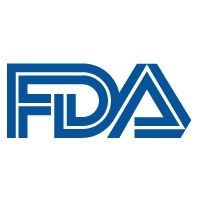Article
FDA Approves Expanded Age Range for Anti-Seizure Medication
Author(s):
The US Food and Drug Administration (FDA) has approved Banzel (rufinamide) as an adjunctive treatment of seizures associated with Lennox-Gastaut Syndrome in children age 1-4 years.

The US Food and Drug Administration (FDA) has approved a supplemental New Drug Application (sNDA) from Eisai Inc. for the use of Banzel (rufinamide) as an adjunctive treatment of seizures associated with Lennox-Gastaut Syndrome in children age 1-4 years.
Banzel had previously receive FDA approval for the treatment of seizures associated with Lennox-Gastaut Syndrome in children older than age 4.
The FDA granted approval for the expanded age range for Banzel based on results from a pharmacokinetic bridging study of a Phase III clinical trial that demonstrated the pharmacokinetic and safety profiles of Banzel when used in children age 1-4 years are consistent with those seen in children ages 4 and above.
In the study, the adverse reaction profile of Banzel in children age 1-4 years was similar to that observed in adults and pediatric patients 4 years of age and older treated with the medication.
The most commonly observed adverse reactions included vomiting, somnolence, bronchitis, constipation, cough, decreased appetite, rash, otitis media, pneumonia, decreased weight, gastroenteritis, nasal congestion, and pneumonia aspiration.
Treatment with Banzel is contraindicated in patients with Familial Short QT syndrome.
Lynn Kramer, Chief Clinical Officer (ECL) and President, Neuroscience & General Medicine, PCU Eisai Product Creation Systems, Eisai Inc., said the approval of Banzel for use in younger children “represents an important milestone, as it may help to address an unmet need of younger patients with Lennox-Gastaut Syndrome.”




